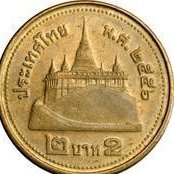Thai gov. to tax (remitted) income from abroad for tax residents starting 2024 - Part II
Notice to Members:
Posts made by individuals reflect their own opinions and should not be taken as fact.
Please draw your own conclusions and consult a qualified professional before acting on any such advice or content.
Announcements
- Keep up-to-date with our Daily Newsletter - Subscribe Here
- All you need to know about Destination Thailand Visa (DTV)
- GET 10% OFF - International Health Insurance with Cigna- Flexible and tailored plans
- Enjoy our NEW daily and weekly featured Quiz !
- THAILAND LIVE - Get All the latest daily Thailand News Headlines
-
Topics
-
Latest posts...
-
104
Can you defend yourself?
Quite possibly it does to you, because you have more phobias than a fly-blown sheep has maggots. -
0
Trump Dodges Questions at Economic Club
Trump ""𝘛𝘩𝘢𝘯𝘬 𝘺𝘰𝘶. 𝘝𝘦𝘳𝘺 𝘨𝘰𝘰𝘥 𝘲𝘶𝘦𝘴𝘵𝘪𝘰𝘯."" As he dodges and comes up with a totally nonsensical answer. Trump goes on "𝘐’𝘮 𝘵𝘢𝘭𝘬𝘪𝘯𝘨 𝘢𝘣𝘰𝘶𝘵 𝘣𝘺 𝘵𝘢𝘹𝘪𝘯𝘨 𝘧𝘰𝘳𝘦𝘪𝘨𝘯 𝘯𝘢𝘵𝘪𝘰𝘯𝘴" which is more nonsense." Tariffs may make the exporter less competitive but the tariffs are paid by American businesses, the importers, and are passed on to the consumer in the way of higher prices- Inflationary. https://www.theatlantic.com/newsletters/archive/2024/09/a-new-level-of-incoherence-from-trump/679742/?gift=_WvLxLquFZWaELBkwHbkizLEYcsa9I_MfRcdGtEDATw&utm_source=copy-link&utm_medium=social&utm_campaign=share -
3
How much time do you spend ironing your clothes...in Thailand?
If you are living in a small village, why not hire a local to iron for you, if in a town there will be an ironing shop. -
3
How much time do you spend ironing your clothes...in Thailand?
Zero, thats one of the maids daily tasks. -
3
LAST TIME REFUSED ENTRY RETRY MONDAY
he was rejected once again with the non readers of the forum why is it a favour to sign up? he would not wish too knocked back once going into swapy after just over 6 months back to back entries and extensions on VE never applies for visas would not want to retire in thailand happy to in out so far two replies none of which are actual replies on his chances are things a bit more lenient now with the 60 VE in play. sometimes it really is a waste of time posting here -
14
Trump Backs Elon Musk's Plan to Slash Government Spending
After Trump stops the war in Ukraine there will be plenty of money for the secret service to stay in hotels. -
14
Trump Backs Elon Musk's Plan to Slash Government Spending
It certainly won't be any worse off. BTW, Musk is only copying NZ. The government in NZ has been laying waste to the bureaucracy, and long overdue too. https://www.1news.co.nz/2024/05/02/poll-majority-agree-with-public-sector-job-cuts/ -
20
Are you HAPPY to be ALIVE?
I was until I read the headings of your latest posts.😦 -
3
How much time do you spend ironing your clothes...in Thailand?
I'm beginning to think that you shouldn't live alone.....and that you find all decisions to be somewhat traumatic. Maybe you can find a Magic 8 Ball here in Thailand to answer all these questions? Surely, it will be as dependable as the AN crew but faster. PS. you don't have room for a fold up ironing board? under the bed? PPS... I'm a fast and fussy ironer myself... thanks to my mother and a stint in the reserve army. -
9
MI6 and CIA: The World Order Under Unprecedented Threat
From the day entering office Biden has gone around sabre rattling stating the USA needs to lead the world. What he's telling us is he wants to rule the world. Sullivan is a hard-core neocon along with Blinken. I wouldn't believe a word those two guys say. When I want an honest assessment of what is happening in the world I go to esteemed academics like Jeffrey Sachs & John Mearsheimer who are nearly daily on one YouTube channel or another. Former top CIA analyst Roy McGovern is also worthwhile watching.- 2
-

-

-
3,037
Latest developments and discussion of recent events in the Ukraine War
Yes, this is a likely explanation. Another is that they may have been misidentified,. Belarus and Russia air intervention system operators are scared. They obviously want to protect their nations, but are also worried about being blamed if a drone or missile gets through their screens. Morale cannot be great.- 1
-

-
36
Thailand Aims to Launch ASEAN’s First Spaceport, Eyes Global Space Race
Sign next to the entranceway to space capsules, in several languages: Do not bring durian into spacecraft. -
9
-
19
HOW TO: How to get rid of a single persistent mosquito, at night?
Very nice craftsmanship, for sure. -
14
Trump Backs Elon Musk's Plan to Slash Government Spending
This is what it might be about
-
.png.3b3332cc2256ad0edbc2fe9404feeef0.png)


.thumb.jpeg.435f0fb7221c5dd6500feca45095b936.jpeg)







Recommended Posts
Create an account or sign in to comment
You need to be a member in order to leave a comment
Create an account
Sign up for a new account in our community. It's easy!
Register a new accountSign in
Already have an account? Sign in here.
Sign In Now